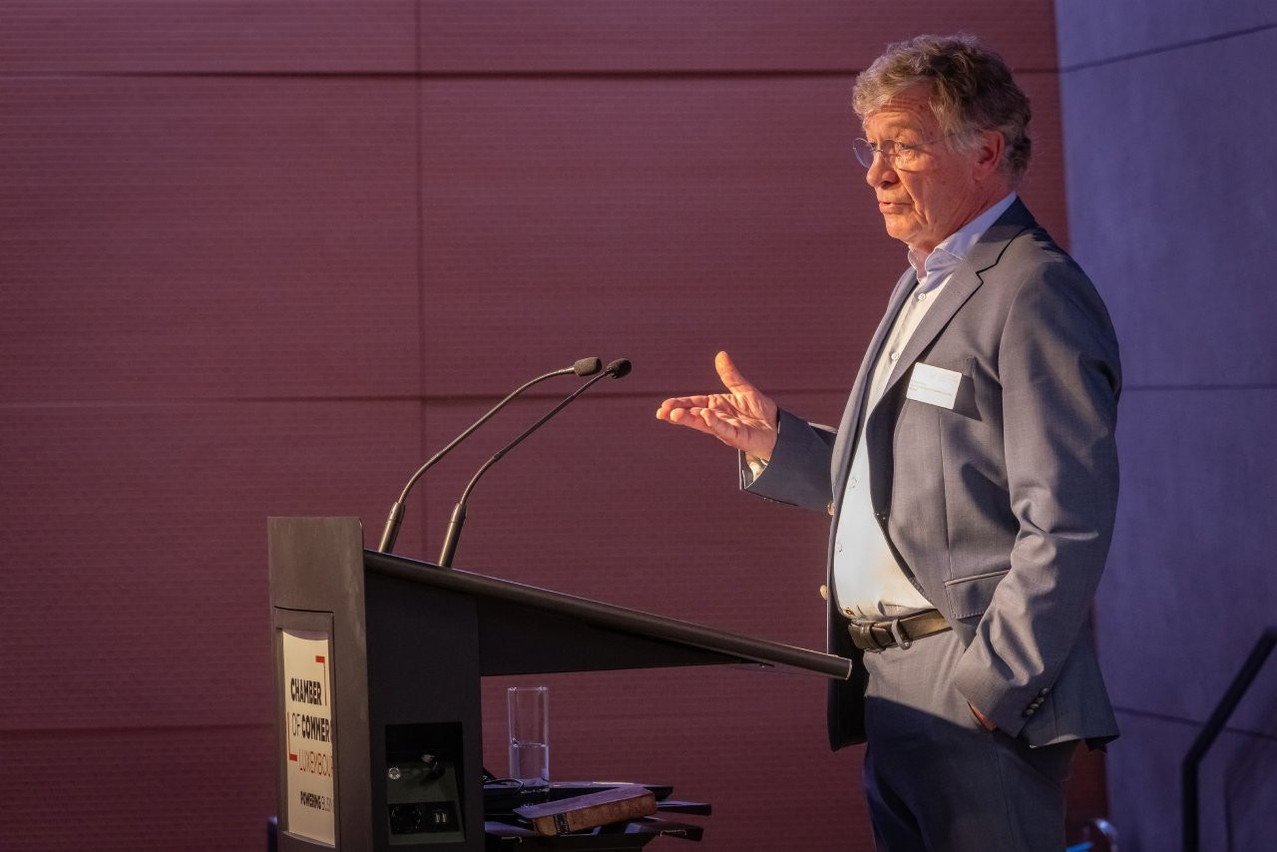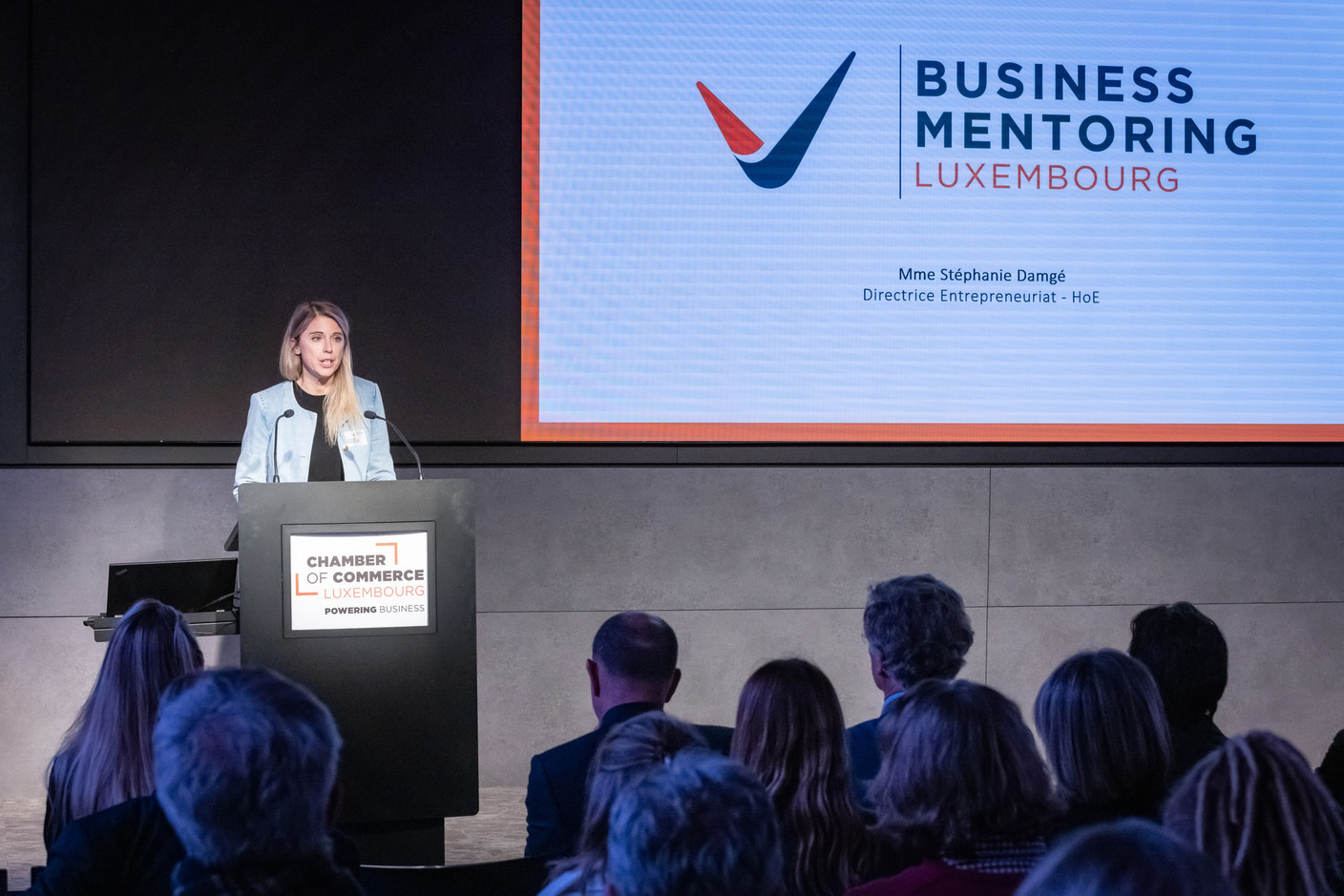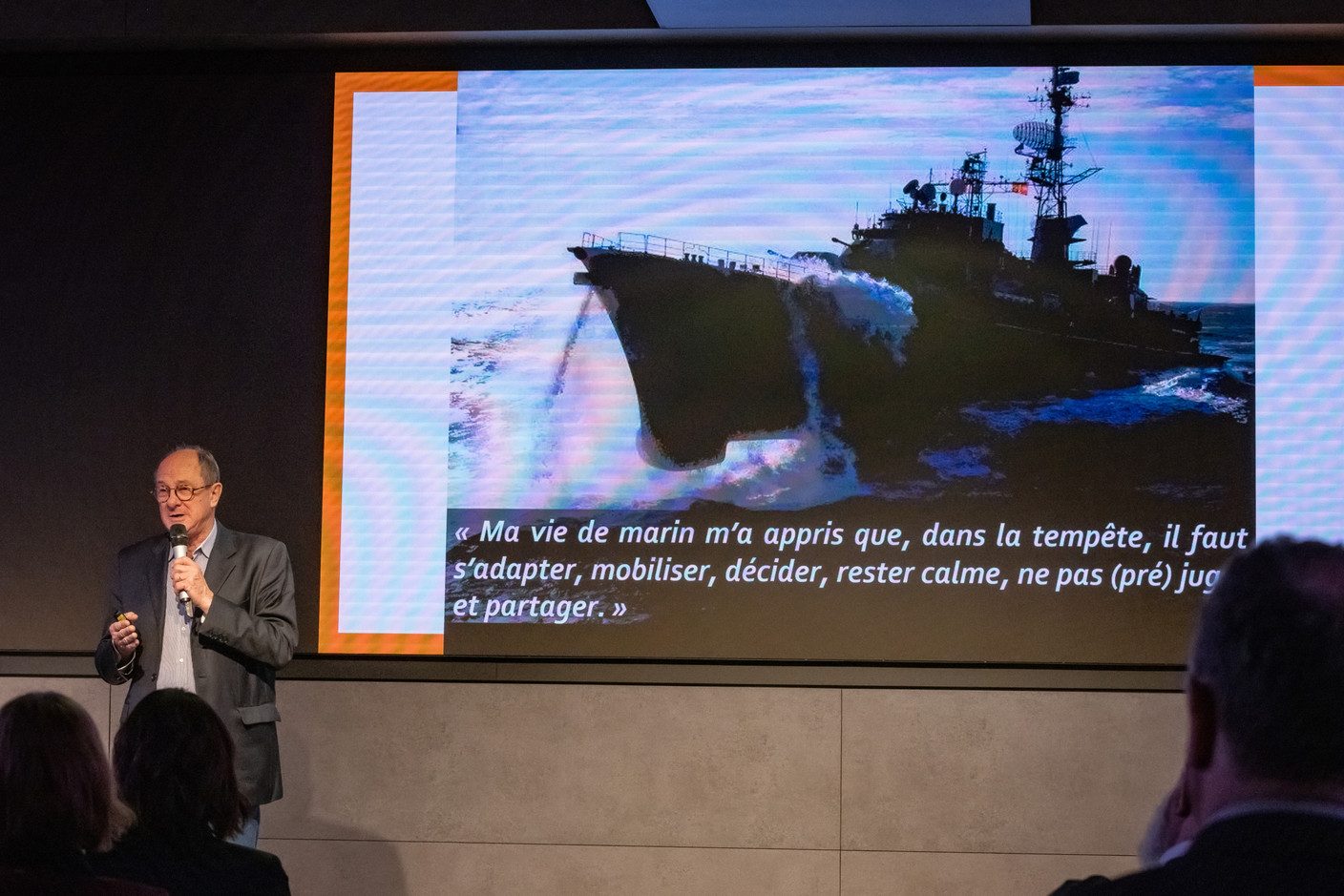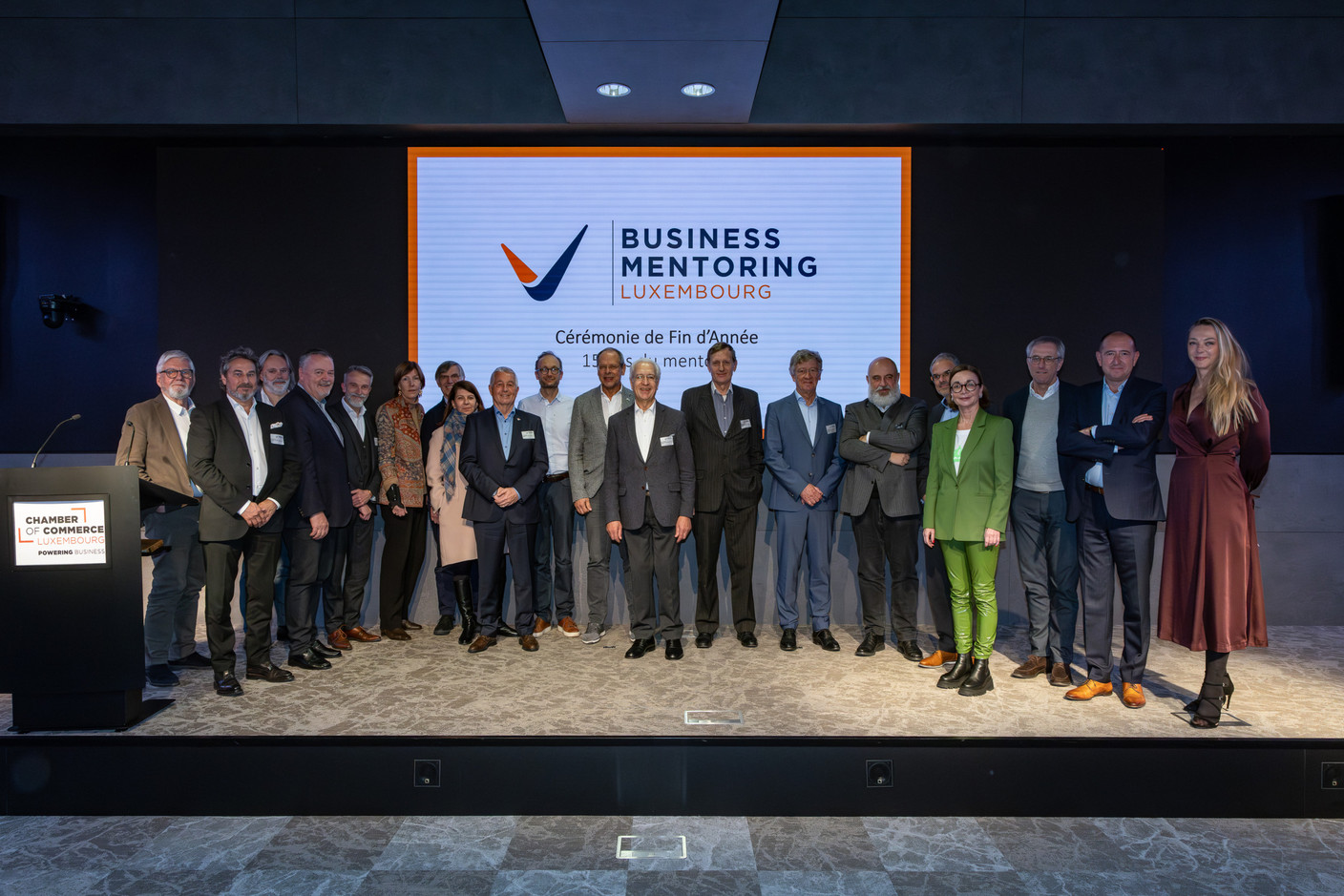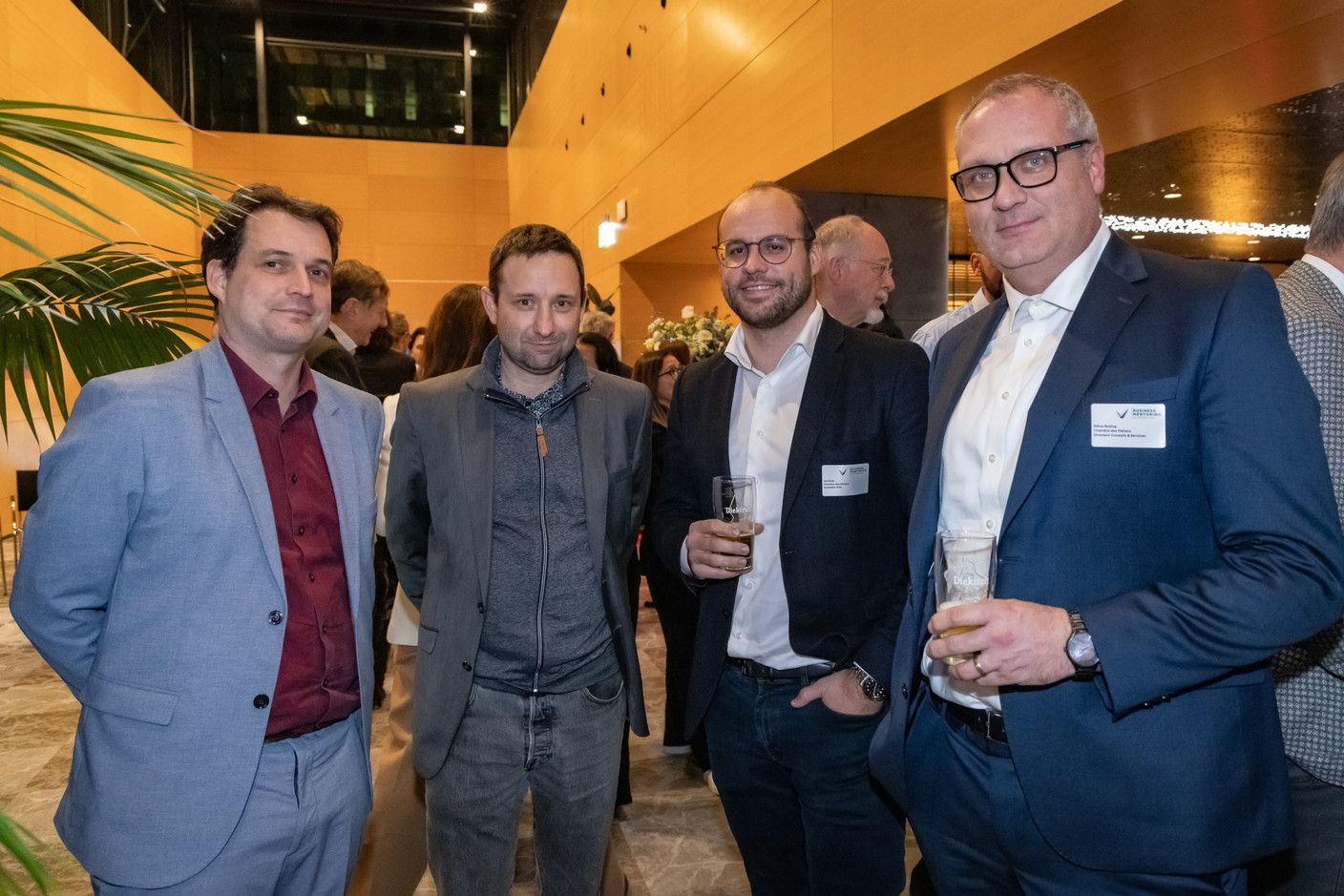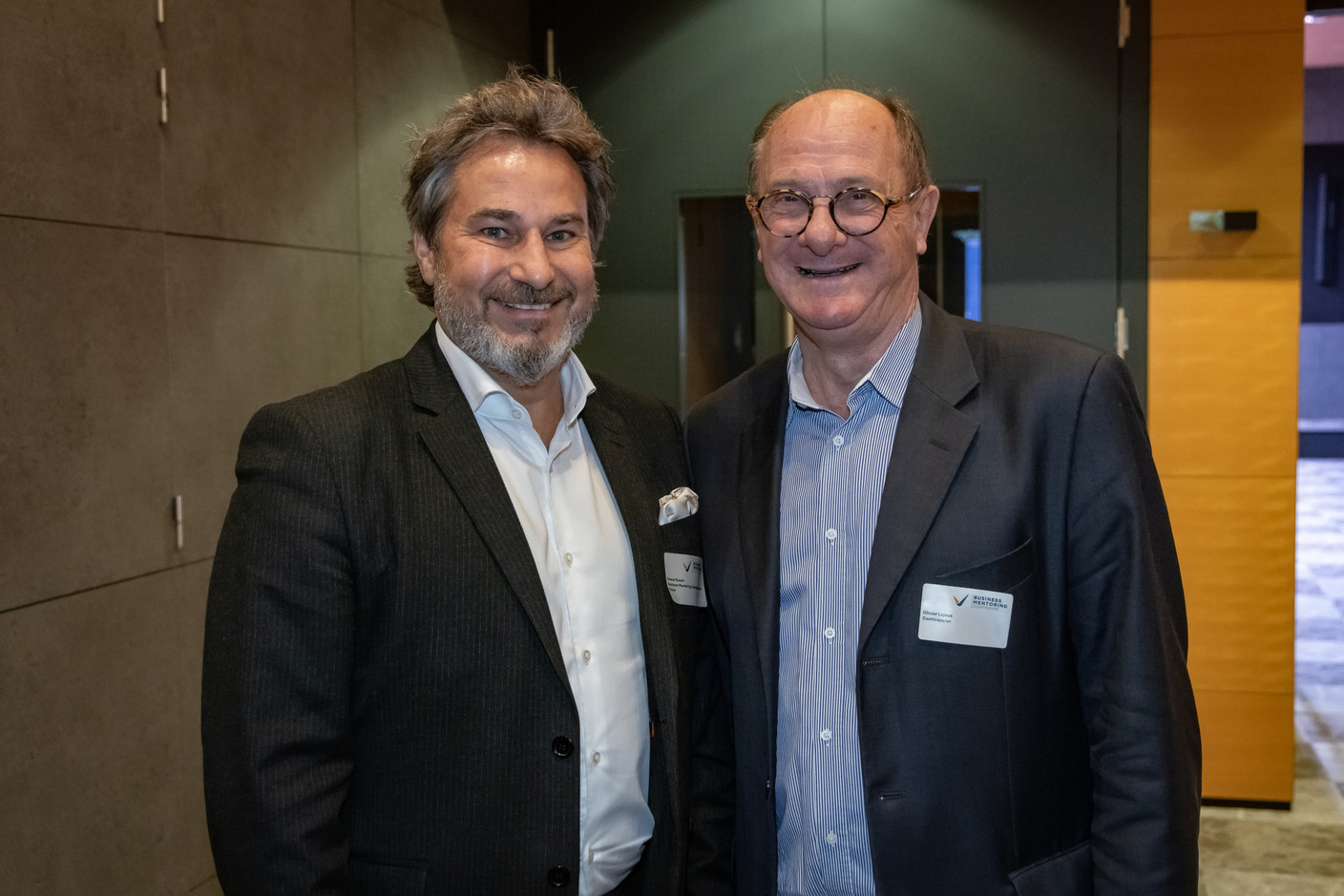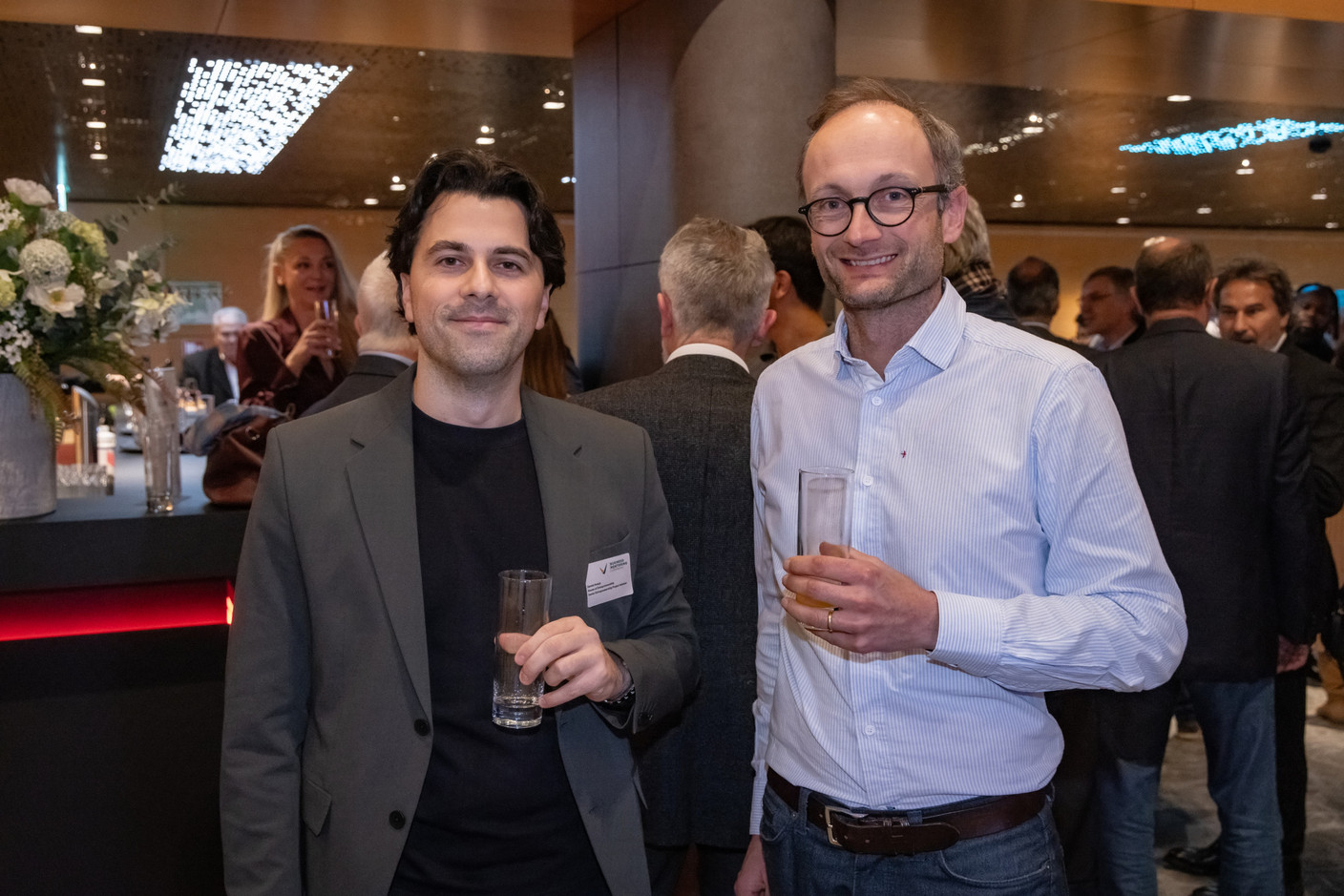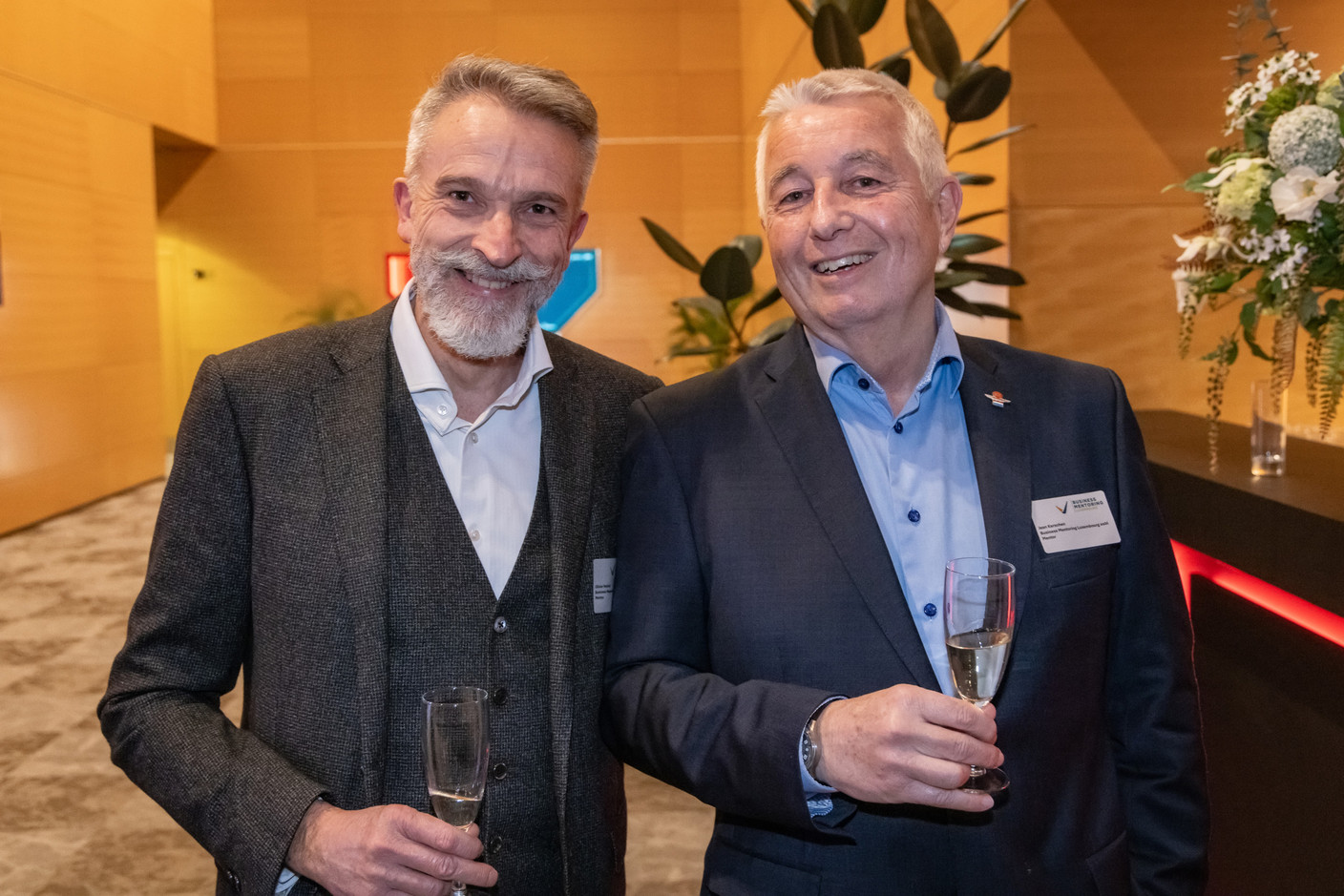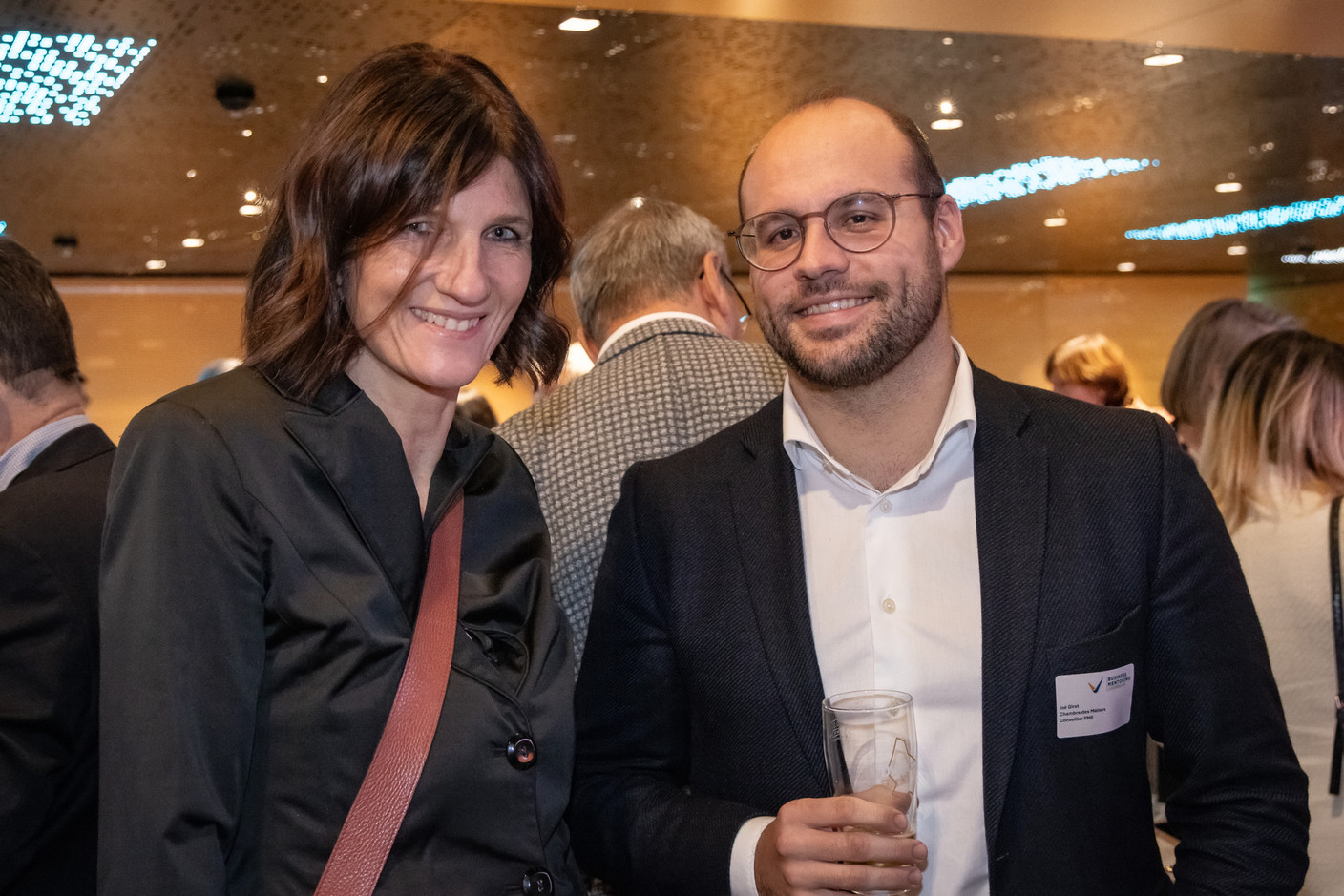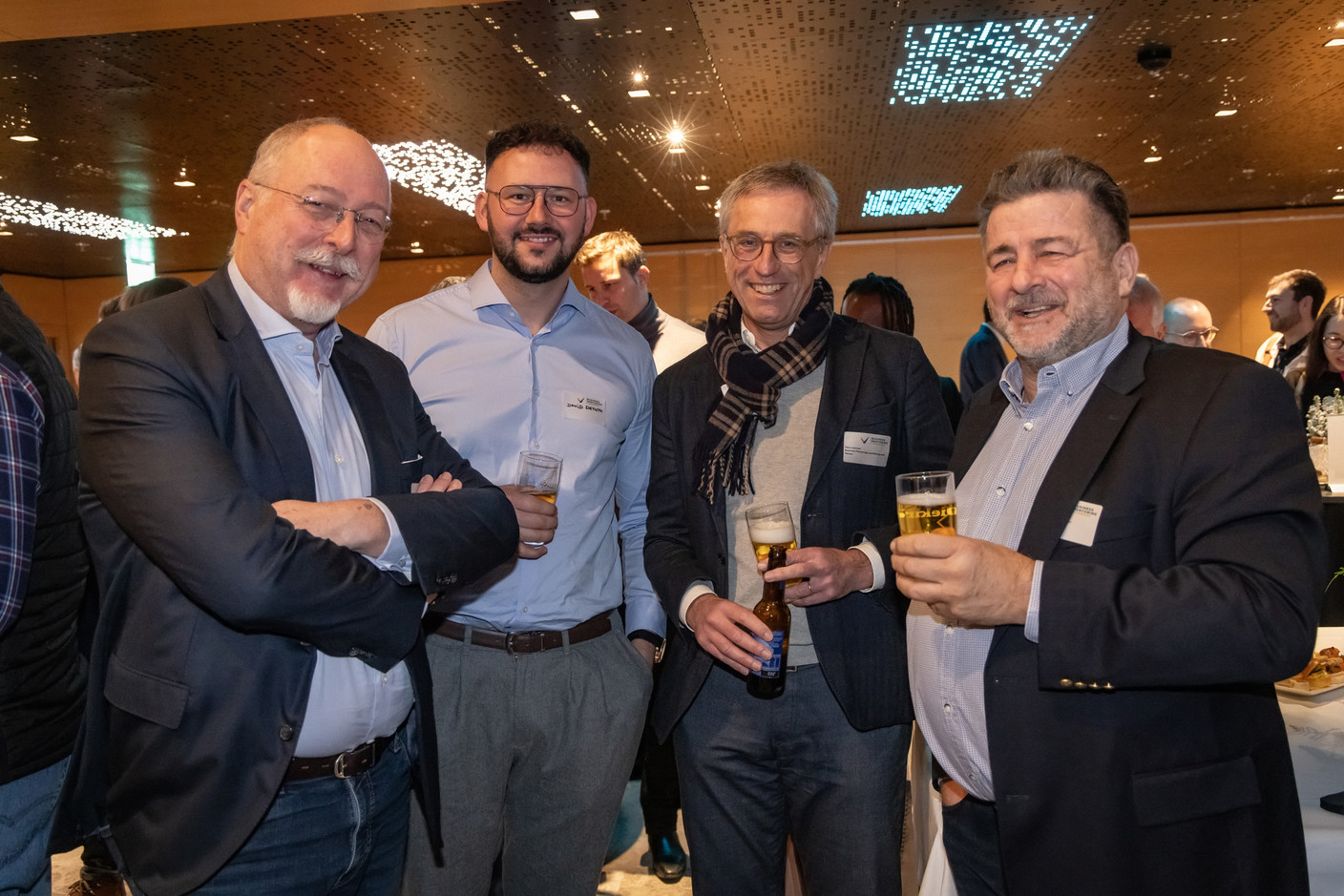“The art of leadership.” To mark its 15th anniversary, Business Mentoring Luxembourg (BML) asked guest speaker Olivier Lajous, a former admiral converted to human resources (his peers voted him HR director of the year in France in 2012), to add his own personal perspective to what was also its traditional end-of-year event on 4 December.
The art of leadership is, in a way (very much), the raison d’être of the BML, which was founded on the initiative of the Chamber of Commerce in 2009. It became a non-profit association in 2019 and is supported, in addition, by the Chamber of Trades and the Federation of Young Business Leaders.
Tackling loneliness
“The original idea behind the programme was to provide more support for entrepreneurs, and to enable them to break the professional isolation they sometimes experience,” explains , who has held the post of chair since the transformation into a non-profit organisation.
“My desire was to give back to entrepreneurship what it had given me thanks to dedicated people,” says Faber, who is an engineer by training and a former graduate of the Federal Institute of Technology in Zurich. He held management positions at Siemens and Arbed before opting for human resources consultancy in Luxembourg and now specialises in executive transition management. “I’ve seen a lot of different situations,” sums up the man who is himself a mentor at the BML.
“We’re not coaches”
Besides Faber, there are 34 mentors, “senior executives or entrepreneurs with, or having had, wide-ranging and far-reaching responsibilities,” who give their time on a voluntary basis.
Since the start of the programme, BML claims to have mentored 220 professionals, 25 of whom are currently working. There is no charge for this service. The entry fee for BML services is €150. This is a membership fee for both mentees and mentors.
Over the last few years, “entrepreneurs from the craft sector have become more and more present,” says chairman Faber. “We’re not coaches, but all our mentors work on soft skills. It’s important to stress that our activity is focused on the mentee, not the company.”
A year-long relationship
The “remarkable” work of identifying and “recruiting” these mentors is carried out by manager Barbara Stroup. On average, the mentor-mentee relationship is organised around a monthly meeting lasting several hours over the course of a year. “We have an in-house skills grid to ensure the best possible match between mentor and mentee,” concludes Faber. “We refer to this relationship as a dyad.” According to the Larousse dictionary, this is the definition of the smallest possible social group, in which each person contributes something to the other.
This article was originally published in .
